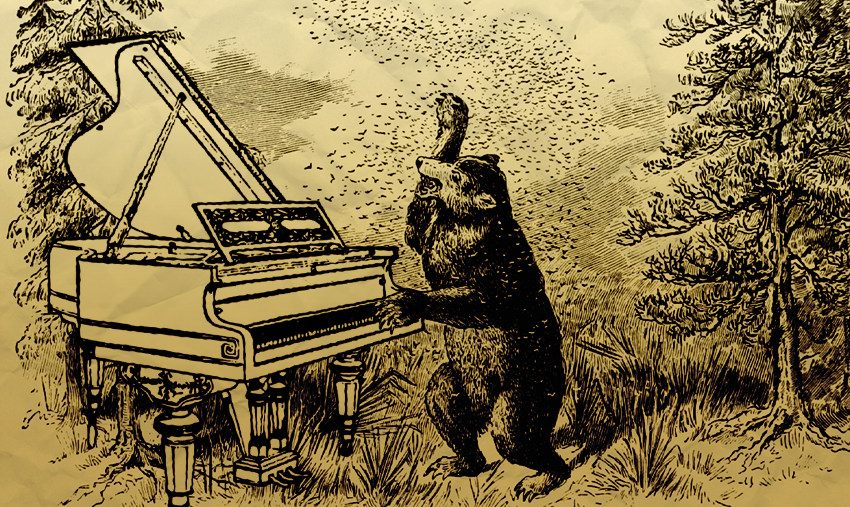“The Flight of the Bumblebee” was the theme for what ’60s superhero show?
Don't scroll down until you've answered!

If you search Britannica Academic for the name of composer Nikolai Rimsky-Korsakov, the first hit is the article for the Green Hornet, and the second is the biography of composer Nikolai Rimsky-Korsakov. It’s pretty on-brand for the self-taught tunesmith, who wrote in Russia, in the Russian language, on almost exclusively Russian and Slavic themes, and thus has his works performed to this very day almost exclusively within the (admittedly expansive) bounds of that cantankerous nation.
Even among his obscure operas,1 1900’s The Tale of the Tsar Saltan – based, like so many Russian works, on a poem by Alexander Pushkin – is not especially distinguished. Just ask The Guardian, which in 2008 reviewed a rare London production on the centenary of the composer’s death. They called it “a strange mix of Cinderella and Shakespeare’s A Winter’s Tale – complete with a swan-princess, a city that rises out of the sea, and a magic squirrel that finds emeralds in acorns – but dramatically it’s not one of Rimsky’s greatest operas.”2
Nonetheless, the opera gave us Rimsky-Korsakov’s most familiar piece of music this side of Sadko’s “Song of India.” The third act opens with Prince Guidon, newly installed as the leader of that sea-rising city, missing his dad (the Tsar Saltan). The aforementioned swan-princess changes him into a bumblebee so that he can stow away on a homebound ship. You can already hum the music that ensues, which later came to be called “The Flight of the Bumblebee.”3
The composer himself must not have thought much of the orchestral interlude – the concert suite he extracted from the opera sticks to Acts I, II, and IV. But Charlie Chaplin elevated its stature in the action sequences from 1925’s The Gold Rush, and then it was picked by the creators of The Green Hornet – originally conceived in 1936 as a radio-show rival to The Lone Ranger – thus ensuring “The Flight of the Bumblebee” would lodge itself in the American consciousness. Indeed, it’s never been far from there in the decades since:
- Band-leading trumpet virtuoso Harry James did an especially bumblebee-sounding version in 1941.
- One-hit novelty act B. Bumble and the Stingers rode a decidedly non-virtuosic piano cover to the top 40 in 1961.
- The 1977 premiere of The Muppet Show used the song as background music while Gonzo tried and failed to eat a tire.
As for Rimsky? Outside of Russia, your best chance to see one of his operas would be The Golden Cockerel, based on (checks notes) a poem by Alexander Pushkin about (checks notes) a war that is started by a magic rooster who tells the tsar that a neighboring country plans to invade them. Hmm.
If that’s not your thing, you can just watch pianist Yuja Wang absolutely destroy “Flight of the Bumblebee.”
- I mean, listen to these titles: The Maid of Pskov, Pan Voyevoda, Servilya, Mlada, Kaschchey the Deathless, and The Legend of the Invisible City of Kitezh and the (freaking) Maiden Fevroniya
- With that synopsis, how could it not be?
- What you may not realize is that the opera gave it optional lyrics, and Wikipedia’s translation of those lyrics is unintentionally hilarious: “Well, now, my bumblebee, go on a spree / Catch up with the ship on the sea / Go down secretly / Get deep into a crack.”
